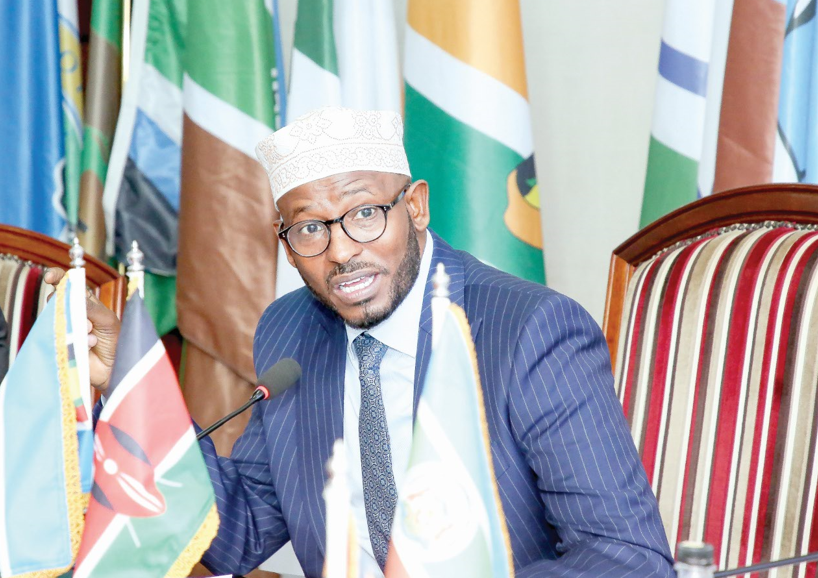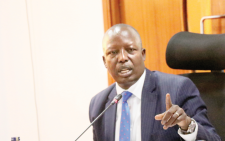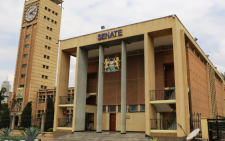Treasury officials say they don’t owe governors a penny

Governors yesterday warned that operations in counties would be paralysed within the next 30 days if the government did not disburse Sh63.6 billion owed to them for October and November.
The money allocated to the 47 devolved governments will be exhausted by next month, leaving them with no cash to fund their operations, the Council of Governors said.
“We demand that the National Treasury immediately releases the funds owed to counties [or] county governments will have no choice but to shut down operations completely,” they warned.
They said the Treasury is supposed to make things easier for devolved governments but was instead delaying approvals for money requested.
“We note with great concern the delays by the Controller of Budget to approve requisitions for the withdrawal of funds. This is unacceptable [coming from] an institution that is supposed to be facilitative,” the governors said.
“We call upon the Controller of Budget to stop being a bottleneck [in] this process and ensure counties access their funds in a timely manner.”
Governors called upon the Senate to expeditiously pass the County Allocation of Revenue Bill to resolve these delays.
But in a sharp rejoinder last evening, the Treasury maintained that it owed county governments no coin, saying it had fully disbursed funds to them except for November.
“As of October 18, 2024, the National Treasury has fully disbursed funds to county governments, up to date with all payments except for the current month of November,” said the ministry on its X page.
But governors warned that devolution was under immense threat because the Treasury was starving counties of resources and crippling their ability to offer essential services to residents and spur economic growth.
Governors also said they objected to the National Assembly’s decision to reduce counties’ equitable share by Sh20 billion.
“Any reduction to county equitable share will negatively affect service delivery and grind the counties to a halt, considering the allocated amount of Sh400.117 billion is based on historical audited accounts,” said Council of Governors chairperson Ahmed Abdullahi.
He continued: “We hold the position that the Supplementary Appropriations Act 2024 based on the Division of Revenue Amendment Bill is un-procedural and unconstitutional.”
Power grab
The governors spoke days after opposition leader Raila Odinga weighed in on the impasse over the Division Revenue Bill currently before a mediation committee, blaming MPs for the stalemate.
Raila alleged that MPs were plotting a power grab by depriving counties of their ‘dues’ and instead allocating themselves funds for the National Government Constituency Development Fund and Government Affirmative Action Fund.
“These funds give MPs the power to conceive, implement projects, and oversight them at the same time,” he said.
Governors cited the Supplementary Appropriations Act 2024, noting that it was not based on the Division of Revenue Act 2024 but on figures contained in the bill now before the mediation committee in Parliament.
Governors were closely monitoring ongoing deliberations in Parliament over the Division of Revenue (Amendment) Bill 2024, said Abdullahi.
“We wish to affirm and support the Senate for their decision to retain county allocations at Sh400.117 billion. This will [help] the implementation of the devolved functions by county governments,” governors said.
Protracted deliberations
They lamented that more than five months into the 2024/25 financial year, the County Allocation of Revenue bill had not been signed.
“This is despite the bill being passed by both houses of Parliament. Due to these protracted deliberations, county governments continue to bear the brunt [of these delays] as they are yet to receive their equitable allocation for the current financial year,” the governors said.
Despite their concerns, they added, the national government was receiving its shareable revenue as the National Assembly had passed the 2024 Supplementary Appropriations Act.
“This goes against a Supreme Court Advisory Reference No. 3 of 2019 which stipulated that Parliament cannot pass an appropriation bill before finalisation of the Division of Revenue Bill,” they said.
These actions, they said, were an affront to devolution and an overt attempt to weaken and undermine a governance structure enshrined in the Constitution.









